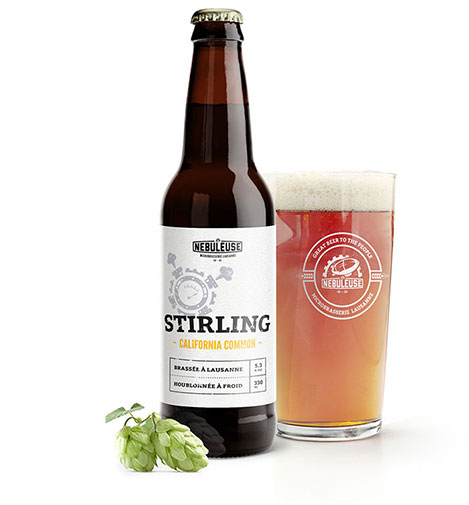My first beer recipe was pretty much improvised: take 3 fermentables, 3 hops and a yeast; all that in approximate amounts found online and brew to see what it gives
This time, I wanted to clone one of my favorite beers, a California Common created by a local brewery, which required a much more precise recipe

Luckily, the ingredients and properties (color, bitterness, ABV) were provided on their website, but not the proportions nor any brewing procedure
This made for an excellent exercise to come as close as possible to those figures using online tools
I started by creating a new recipe on brewersfriend.com and added the ingredients
Then, what is really amazing, is that all the properties of the final beer are updated on-the-fly whenever you change something
Plus, there are scales that let you see if you are within reasonable ranges depending on the beer style you want to brew
Altogether, using Brewer’s Friend was a very enriching experience that allowed me to create a recipe that closely matched all the properties of the beer I wanted to clone
On top of that, this recipe allowed me to experiment with dry hopping, which consists in adding hops directly to the fermenter during fermentation, which adds flavor without adding bitterness
More about dry hopping here
Enjoy!

Hey I noticed you used lager yeast for this recipe? Did you have to keep the primary fermenter cooled while fermentation was taking place? I wanna try this recipe because I love common style beers
Hi,
No, I didn’t refrigerate the fermenter.
These “Steam beers” or “California Common” were actually a solution found by early German immigrants in California to brew lager beers at room temperature.
By the way, you shouldn’t worry about primary and secondary fermentations either; just leave your beer in the same fermenter for 2 weeks, that won’t cause any unwanted off-flavors and you will reduce the risk of contamination.